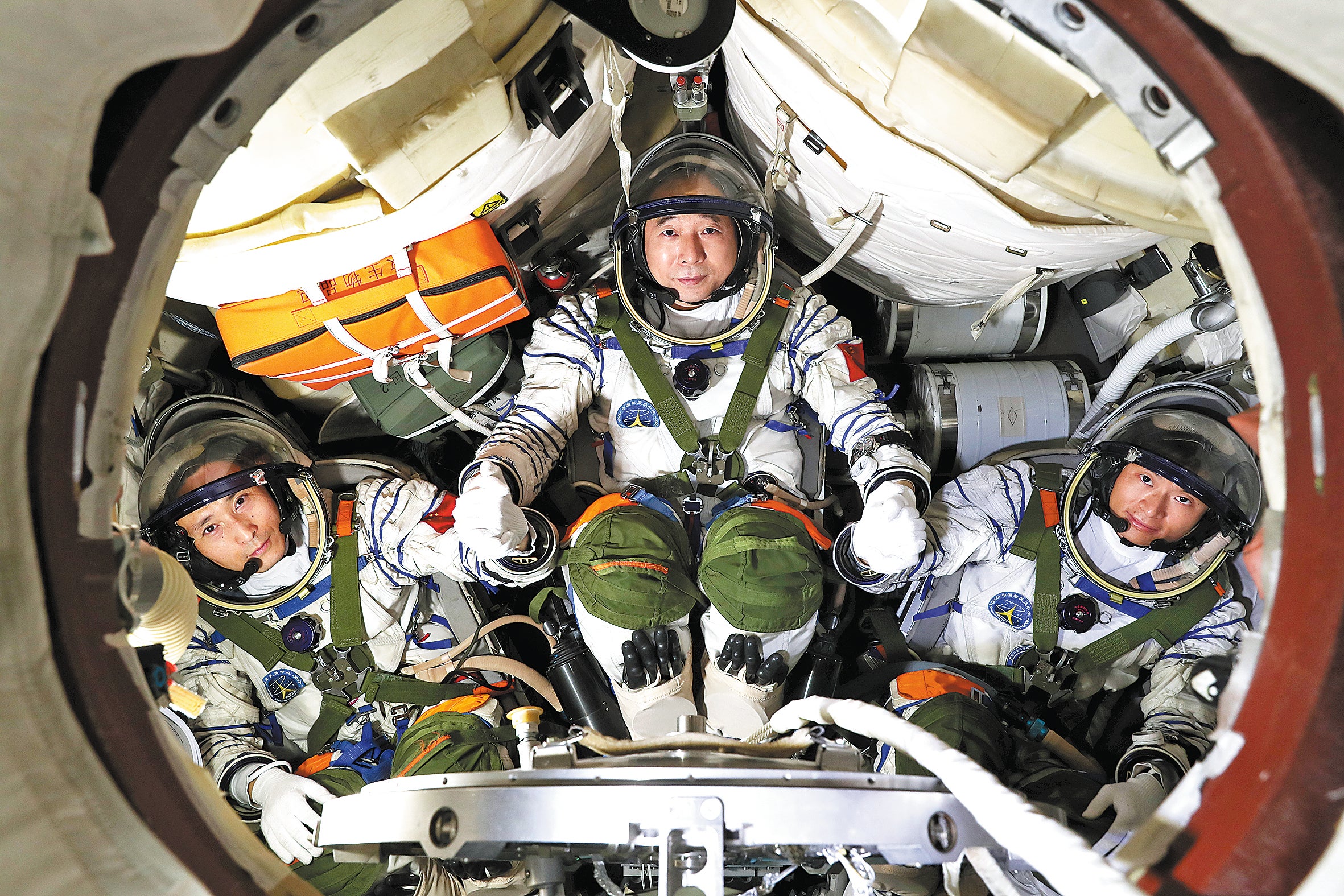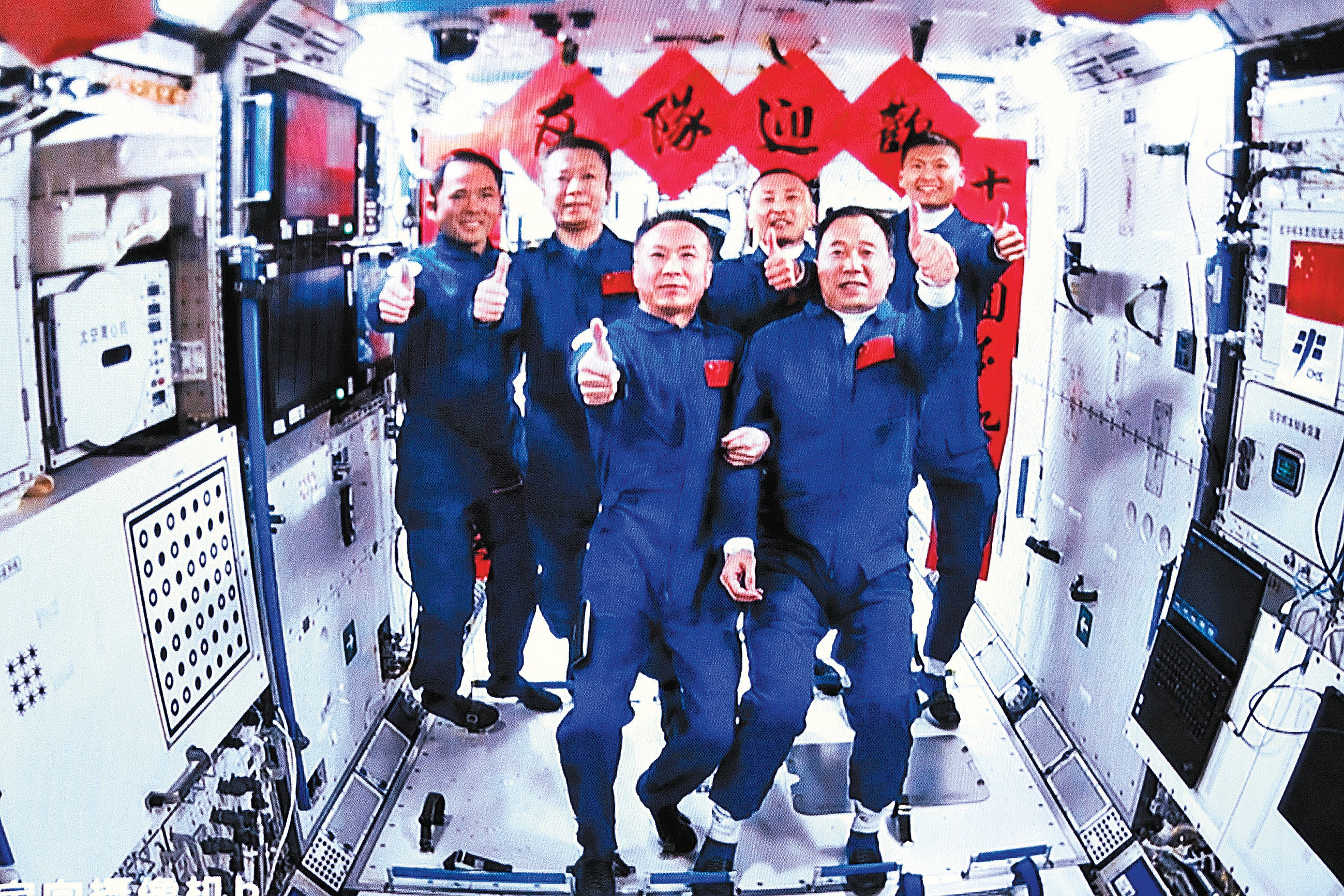Professor becomes first Chinese civilian in space
THE ARTICLES ON THESE PAGES ARE PRODUCED BY CHINA DAILY, WHICH TAKES SOLE RESPONSIBILITY FOR THE CONTENTS

The vocation of astronaut had for a long time seemed “sacred and distant” to Gui Haichao until the researcher became a member of the Astronaut Centre of China. The 36-year-old from Yunnan province became the first Chinese civilian to fly in space.
Aboard the Shenzhou XVI spacecraft, Gui, his commander Major General Jing Haipeng and fellow astronaut Colonel Zhu Yangzhu were launched by a 20-storey-tall Long March 2F carrier rocket that blasted off at 9:31 am on May 30, 2023, from the Jiuquan Satellite Launch Centre in northwestern China’s Gobi Desert.
Within hours of the launch, the Shenzhou XVI mission crew reached orbit and started work in the Tiangong space station.
Fifteen years ago, Gui was a senior at the School of Astronautics under Beihang University, majoring in spacecraft design and engineering. “When Jing Haipeng was flying onboard the Shenzhou VII spaceship in September 2008, I was still a university student. I watched the live broadcast of our nation’s first spacewalk that was carried out by the Shenzhou VII crew,” he said during a recent interview. The Shenzhou XVI mission is Jing’s fourth spaceflight.
“I just couldn’t even imagine at that time that I would become a colleague of his and train and live in the same place. And now I am an astronaut in his crew and we will fly together to the space station,” Gui said.

In the following years, Gui continued his study at Beihang and graduated in the summer of 2014 with a doctorate in spacecraft design. The young researcher then spent two years in a post-doctoral programme working on integrated directional and orbital control technology for sophisticated spacecraft at the Department of Earth and Space Science and Engineering at York University in Toronto.
In the summer of 2016, Gui undertook post-doctoral research on the detection of small celestial bodies and high-precision forecast technology for spacecraft movement at the Department of Aerospace Engineering at Ryerson University, which was later renamed Toronto Metropolitan University.
He returned to Beihang in September 2017 after receiving the university’s invitation to teach as an associate professor at the School of Astronautics.
At Beihang, the researcher’s academic interests included spacecraft dynamics, guidance, navigation and control technology for aerospace systems. He has published more than 50 journal articles and academic conference papers.
In the spring of 2018, Gui and his colleagues were told by the school’s president that China’s manned space authorities had decided to select the third batch of astronauts, including the first spaceflight engineers and science payloads specialists.
“The president told us that the posts of spaceflight engineer and science payloads specialist would be open to civilians working for non-military research entities. He said this was a very precious opportunity and encouraged those interested to apply.
“I have been a fan of space exploration for many years and sometimes dreamed about doing my research in space, so I was excited hearing this news and immediately came to the school’s administrative office to fill in the application form,” he said.
After rounds of physical checks and professional tests, Gui earned a place in the elite club and started training at the Astronaut Centre of China. Thanks to his perseverance and diligence, Gui progressed rapidly in every training course and was chosen for the Shenzhou XVI mission.
The Shenzhou XVI crew members will stay in Tiangong for around five months and are scheduled to return to Earth in November. They will carry out several spacewalks during the mission to mount equipment outside the station and also conduct maintenance work, Lin Xiqiang, deputy director of the China Manned Space Agency, said on May 29.
According to Lin, China now has all prerequisites for sending foreign astronauts into space – a well-constructed space station, a reliable astronaut transportation system, and mature methods for astronauts’ training and support.
“We are actively working on this matter. I very much welcome and look forward to foreign astronauts flying on board our space station,” he said.

Bookmark popover
Removed from bookmarks